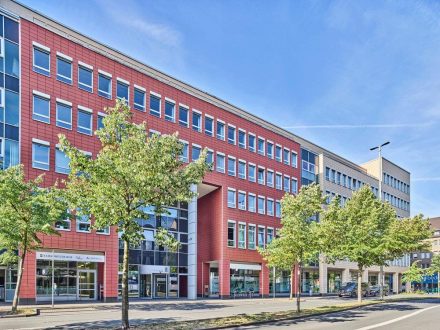Arrhythmogenic Cardiomyopathy
The international team, led by Professor Alessandra Rampazzo of the Department of Biology at the University of Padua and composed of researchers from Universiteit Maastricht (Dr. Martina Calore), Universitair Medisch Centrum Utrecht (Dr. Anneline te Riele), Lutech Group (Dr. Barbara Alicino), Italbiotec Consortium (Dr. Melissa Balzarotti), Ksilink (Dr. Peter Sommer), and Italfarmaco (Dr. Christian Steinkuhler), will study the development of new therapies for arrhythmogenic cardiomyopathy (ACM), a genetic disease that affects the heart and represents one of the main causes of ventricular arrhythmias and sudden cardiac death. With an incidence of 1 in 5000, it can be considered a highly relevant cardiovascular disease.
Arrhythmogenic cardiomyopathy is a degenerative heart condition often implicated in the sudden death of athletes and adolescents. The histopathological hallmark is fibroadipose replacement of the myocardium, which impairs the functioning of the cardiac muscle, leading to the onset of ventricular arrhythmias. Currently, there is no therapy available to prevent or at least slow down the progressive tissue changes that could be ultimately fatal.
Mutations in numerous disease genes have been identified as contributors to this condition. However, many of the genetic alterations found in the DNA of affected patients have uncertain significance and are not yet directly linked to the disease, providing limited utility for both geneticists and physicians.
"Thanks to the funding obtained from Horizon Europe, our research project aims to open up new therapeutic perspectives based on the results obtained from various disease models. This is an innovative and multidisciplinary project, whose success is strongly supported by the diverse but complementary expertise of partners from academic institutions and leading companies in the fields of computer science, biotechnology, and pharmaceuticals," says Professor Alessandra Rampazzo of the Department of Biology at the University of Padua, scientific coordinator of the international team. "Such collaboration will allow us to achieve our ambitious goals. The overall objective of the project funded by the European Community is to integrate and analyze clinical and molecular data from the ACM patient registry using artificial intelligence, along with data from structural and functional analyses of cellular models such as three-dimensional cardiac microtissues and in vivo models. These results will enable us to gain a better understanding of the role and impact of genetic alterations on the clinical progression of arrhythmogenic cardiomyopathy. Additionally," Alessandra Rampazzo concludes, "the
project includes screening and subsequent evaluation of the therapeutic potential of several compounds and innovative molecules, both in cellular and animal models." 3
The discovery of new therapeutic targets and an understanding of the underlying pathogenic mechanisms could not only lead to new therapies for ACM but could also pave the way for better clinical management of the disease and an improvement in the quality of life for patients.
The meeting of all participants, which will officially launch the project, will be held in Padua on October 26th and 27th.
Ksilink is a French-German association of renowned industrial and academic players with the aim to provide innovative patient-based, translational tools for phenotypic drug discovery and the development of next generation medicine. Ksilink was founded in 2014 in Strasbourg, France, with its own, in the meantime affiliated, platform and team. The association provides a network of excellence with unique capacities for disease modelling, phenotypic screening and preclinical drug development. Its affiliated platform, Ksilink Services SAS, combines outstanding expertise in high-throughput, high-content screening (HTS-HCS) with AI-driven image analysis and data mining in an industrialized surrounding. Since its creation, Ksilink benefits from a strong support from its founding members and the French “Programme d’Investissement d’Avenir”. It currently counts 12 members from academia, hospitals, biotech and pharma, acting together to bridge the gap between academic excellence and industrial expectations, and conducts a pipeline of drug discovery programs in the field of oncology, muscular and neurologic disorders. www.ksilink.com
Ksilink
16 rue d’Ankara
F67000 Strasbourg
Telefon: 0033 68 93 01 77
http://www.ksilink.com
Business Development
E-Mail: mona.boye@ksilink.com
![]()



